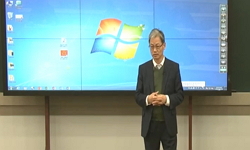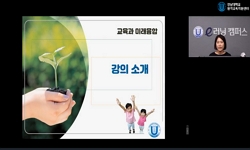대학생 시기는 진로탐색기의 후반과 진로 확립기의 초반에 해당하며, 이 시기에는 직업적 탐색과 관심이 구체적인 실행으로 이어진다. 성공적인 사회 진출을 위해 대학 생활에서 가장 중요...
http://chineseinput.net/에서 pinyin(병음)방식으로 중국어를 변환할 수 있습니다.
변환된 중국어를 복사하여 사용하시면 됩니다.
- 中文 을 입력하시려면 zhongwen을 입력하시고 space를누르시면됩니다.
- 北京 을 입력하시려면 beijing을 입력하시고 space를 누르시면 됩니다.

대학생의 전공 선택 동기가 진로성숙도에 미치는 영향 : 진로 탄력성 매개효과 중심으로 = The effect of university students' motivation for selecting a major on career maturity: Focusing on the Mediating Effect of Career Resilience
한글로보기부가정보
국문 초록 (Abstract)
본 연구는 대학생을 대상으로 전공 선택 동기가 진로성숙도에 미치는 영향을 분석하고, 진로 탄력성이 이 관계에서 매개 역할을 하는지를 검증하고자 하였다. 특히, 진로성숙도를 향상시킬 수 있는 변수로 전공 선택 동기와 진로 탄력성에 주목하며, 이를 바탕으로 대학 내 진로 상담 및 교육 프로그램 개발을 위한 기초자료를 제공하고자 한다. 연구목적을 달성하기 위해 전공 선택 동기, 진로성숙도, 진로 탄력성에 대한 주요 이론적 배경과 선행연구를 고찰하였으며, 각 요인 간의 관계를 실증적으로 분석한 결과, 전공 선택 동기는 진로성숙도에 유의한 영향을 미치는 것으로 나타났으며, 위계적 회귀분석을 통해 진로 탄력성이 전공 선택 동기와 진로성숙도 간의 관계를 부분적으로 매개하는 것으로 확인되었다. 또한, Bootstrapping 기법을 활용한 검증에서도 간접효과의 유의미성이 확인되었다.
대학생 시기는 진로탐색기의 후반과 진로 확립기의 초반에 해당하며, 이 시기에는 직업적 탐색과 관심이 구체적인 실행으로 이어진다. 성공적인 사회 진출을 위해 대학 생활에서 가장 중요한 결정 중 하나는 전공 선택이며, 이는 졸업 후 직업 선택과 밀접한 관련이 있다. 그러나 청년 실업률 증가와 취업난으로 인해 많은 학생이 흥미와 적성보다는 취업이 용이한 전공을 선택하는 경향이 커지고 있으며, 이로 인해 전공 부적응, 자퇴, 전과 사례가 증가하고 있다. 이에 따라 정부는 유연한 학사구조를 도입하여 자유로운 전공 선택을 지원하고 있으며, 대학은 학생들의 진로교육을 강화하는 방향으로 변화를 시도하고 있다. 그러나 진로 문제 해결을 위해서는 정책적 지원뿐만 아니라 학생 개개인이 자신의 전공 선택 동기를 명확히 인지하고, 적극적인 진로 설계를 실천하는 것이 중요하다.
본 연구는 대학생을 대상으로 전공 선택 동기가 진로성숙도에 미치는 영향을 분석하고, 진로 탄력성이 이 관계에서 매개 역할을 하는지를 검증하고자 하였다. 특히, 진로성숙도를 향상시킬 수 있는 변수로 전공 선택 동기와 진로 탄력성에 주목하며, 이를 바탕으로 대학 내 진로 상담 및 교육 프로그램 개발을 위한 기초자료를 제공하고자 한다. 연구목적을 달성하기 위해 전공 선택 동기, 진로성숙도, 진로 탄력성에 대한 주요 이론적 배경과 선행연구를 고찰하였으며, 각 요인 간의 관계를 실증적으로 분석한 결과, 전공 선택 동기는 진로성숙도에 유의한 영향을 미치는 것으로 나타났으며, 위계적 회귀분석을 통해 진로 탄력성이 전공 선택 동기와 진로성숙도 간의 관계를 부분적으로 매개하는 것으로 확인되었다. 또한, Bootstrapping 기법을 활용한 검증에서도 간접효과의 유의미성이 확인되었다.
다국어 초록 (Multilingual Abstract)
The university years correspond to the late stage of career exploration and the early stage of career establishment, during which vocational exploration, interests, and decision-making transition into concrete actions. One of the most critical decisio...
The university years correspond to the late stage of career exploration and the early stage of career establishment, during which vocational exploration, interests, and decision-making transition into concrete actions. One of the most critical decisions in university life for a successful transition into society is selecting a major, as it is closely related to career choices after graduation. However, due to the increasing youth unemployment rate and challenges in securing jobs, many students tend to choose majors based on job market prospects rather than their personal interests and aptitudes. Consequently, cases of academic maladjustment, withdrawals, and major changes have been increasing. In response, the government has introduced a more flexible academic system that allows students greater freedom in choosing their majors, while universities are strengthening their career education programs. However, resolving career-related challenges requires not only policy support but also individual efforts from students to clearly recognize their motivations for major selection and actively plan their career paths. This study aims to analyze the impact of major selection motivation on career maturity among university students and examine whether career resilience mediates this relationship. In particular, the study highlights major selection motivation and career resilience as key factors influencing career maturity, with the goal of providing fundamental data for the development of career counseling and education programs in universities. To achieve this objective, the study reviews theoretical backgrounds and prior research on major selection motivation, career maturity, and career resilience, followed by an empirical analysis of the relationships among these factors. The results indicate that major selection motivation significantly influences career maturity. Furthermore, hierarchical regression analysis confirms that career resilience partially mediates the relationship between major selection motivation and career maturity. The significance of this indirect effect was also verified through the Bootstrapping method.
동일학술지(권/호) 다른 논문
-
- 한국취업진로학회
- 채수정
- 2025
- KCI등재
-
청년 커리어 포트폴리오 구성, 작성 및 활용 방안에 대한 합의적 질적 연구: 기업 인사담당자를 대상으로
- 한국취업진로학회
- 이영광
- 2025
- KCI등재
-
- 한국취업진로학회
- 조성순
- 2025
- KCI등재
-
- 한국취업진로학회
- 김미정
- 2025
- KCI등재




 KCI
KCI eArticle
eArticle






